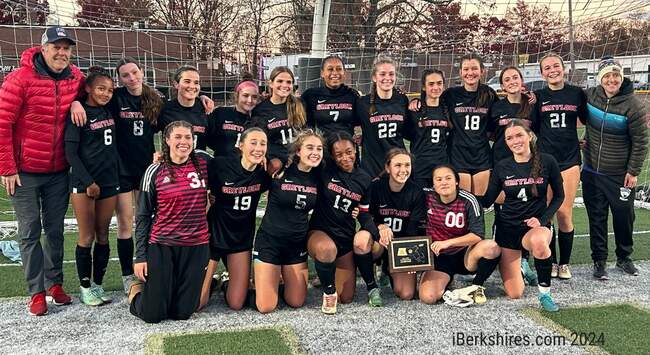
Patrick Signs Budget, Vetoes $122M in Spending
 |
| Finance Secretary Leslie Kirwan explains the veto decisions with Gov. Deval Patrick and Lt. Gov. Timothy Murray. |
Among the projects pinched by the governor's pen were cuts in earmarks for the North Adams Armory, the Berkshire Museum and the Berkshire Economic Development Corp.
Patrick described his vetoes — three times the amount of last year's — as part of a plan aimed at ensuring long-term fiscal stability during a time of national economic uncertainty.
"In recognition of evolving fiscal and economic circumstances, I am proposing a five-point plan to manage state finances through these challenges," Patrick said in a press statement. "This plan is proactive, balanced and flexible, and designed to ensure that state government can meet the highest priority needs of our citizens in challenging economic times."
It would, the governor said, both provide and preserve key economic investments and maintain a strong safety net for citizens.
Last year, the Legislature easily overrode some $37 million of Patrick's $41 million in vetoes.
| |
"Through this budget we have been able to invest in key initiatives to improve the common good of the commonwealth, while also keeping an eye on the bottom line,” said Lt. Gov. Timothy Murray. "It strikes a prudent balance between our fiscal responsibilities and our governing priorities."
Some 260 earmarks filed by lawmakers are affected by the vetoes. They include cuts in programs in education, law enforcement, tourism and development. Nearly $11 million was vetoed from the Office of Travel and Tourism, including $1 million from a $2.5 million budget for enhancing international tourism.
Earmarks for many projects were cut in half: Funds for the North Adams Armory were cut from $150,000 to $75,000; the Mahaiwe Performing Arts Center in Great Barrington, from $200,000 to $100,000; Berkshire Museum in Pittsfield, $250,000 to $125,000; a matching grant for the Berkshire Economic Development Corp.,from $250,000 to $125,000; and Western Massachusetts Economic Development Council, $250,000 to $125,000 for developing, marketing and advertising purposes.
However, funding for the Samuel Harrison House in Pittsfield, Barrington Stage Company in Pittsfield and renovations and construction at Tanglewood in Lenox for the Boston Symphony Orchestra were maintained.
The largest vetoes were in the health and human services budget ($59 million); transportation and the Legislature were the only budgets spared the govenor's veto pen.
 The Patrick administration said the budget includes increased savings, efficiencies, and new revenues that were part of the governor's initial House 2 budget. Even with these budget- balancing initiatives, the administration officials say tough choices need to be made to ensure that important long-term investments can be supported.
The Patrick administration said the budget includes increased savings, efficiencies, and new revenues that were part of the governor's initial House 2 budget. Even with these budget- balancing initiatives, the administration officials say tough choices need to be made to ensure that important long-term investments can be supported. While many of the budget items eliminated or reduced have merit, the present fiscal challenges require increased restraint, say administration officals, and spending and management controls will have to be made throughout the year to restrain spending and preserve resources for the highest priorities.
In the companion budget package:
- Expanded 9C authority for the governor to be able to make equitable spending reductions based on the actual performance of tax revenues.
- Increased pensions for retired teachers and state employees averaging $10 per month for those with annual pensions of $40,000 or less.
- Additional contributions by health care reform stakeholders totaling $130 million toward providing coverage to low-income residents.
"This budget reflects the strong partnership between the administration and the Legislature on a number of shared priorities — including education funding, economic development, and public safety," said Patrick. "These investments will expand opportunity and improve the quality of life for the people of the commonwealth."
The final budget along with detailed supporting materials can be found at www.mass.gov/gaa.















